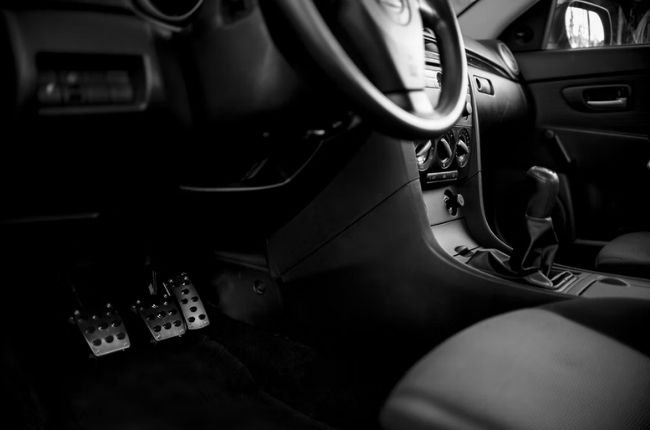
Driving is one of the great privileges of modern life. It gets us from point A to point B and everywhere in between. Of course, what makes that possible is the automobile. Since its invention over a hundred years ago, the car has empowered us to go places we would have never dreamed of exploring.
That said, whatever it is you want to drive, be it a burly sports sedan like the Kia Stinger or a reliable family SUV like the Isuzu mu-X, you're going to need to have formidable skills. Here are five of our best tips for beginner drivers.
Consider enrolling in a driving school

It may not be what you want to hear, but you should consider enrolling in a quality driving school. Many instructors have experience teaching students of all backgrounds and skill levels. The knowledge and practical skills you can gain there will give you a leg up and possibly save you hours of practice.
Even if you're not an absolute beginner, it could be worthwhile to take refresher courses. These intermediate lessons can bring attention to the skills you might have missed or are otherwise not applying well enough. There are always skills to work on when it comes to driving, but it's ultimately up to you to find and refine them.
Find your optimal driving position
Comfort is essential to a good driving experience. You can't drive as well as you could if you're not in a place to take advantage of your skills and potential. With every vehicle you find yourself entering, make sure to adjust the seat position according to your size and build.
Check that your feet, legs, arms, and hands are where they should be in your most comfortable driving position. You should also have the ability to see through the windshield unobstructed for maximum safety.
Save yourself from stressful driving and possibly long-term aches and pains by learning and using your best driving position.
Master your footwork

When teaching neophytes how to drive, one of the more tricky parts seems to be learning to work the pedals well. Whether using a manual or automatic transmission, you need to be intimately familiar with how each pedal functions.
The big thing here is employing smooth operation without sudden and unnecessary movements. Avoid engaging and disengaging the clutch abruptly. Work on accelerating and decelerating as smoothly as possible. Drive around, explore various situations, and challenge yourself to get through them with a competent grasp on the pedals. Getting good at these basic moves can help you gain more confidence in your driving skills as you advance.
Practice defensive driving techniques

Once you get comfortable enough to take off, you'll become aware of the many dangers lurking on our streets. From erring drivers to jaywalking pedestrians and busted roads, any one of these can give you a terrible time behind the wheel.
You have to keep calm in the chaos of it all. As a Jedi Master once said to his Padawan, "remember your training." That training should include, among other things, staying on defense while drivers around you descend to unbecoming behavior.
For example, a driver might try to pass you on the highway, even with limited space to execute. As a beginner driver, you might have several reactions, including confusion and anger. Defensive driving techniques teach us to prioritize safety, so what you could do in this situation is slow down a bit and let the driver through.
Another critical aspect of defensive driving is learning to see up to fifteen seconds ahead. Always look where you're headed and plan your moves ahead of time. If you stay aware of all possible oncoming obstacles, you have a much better chance of conquering everything that comes your way.
Avoid distractions

Distractions have become an all too common issue for modern drivers. We live in a time where people need to be in front of multiple screens for hours and hours a day. People are inseparable from their smartphones, but that should never be the case when driving a car.
Apart from actually being illegal (as per the Anti-Distracted Driving Act of 2016), using mobile phones while behind the wheel can be extremely dangerous for yourself and those around you. These distractions divert your focus from the road, exposing you to potential crashes and other accidents.
It's not just smartphones, either. Anything can be a driving distraction if you let it. However, you'll need to learn to stay aware at all times if you want to shed your beginner status eventually.
Latest Features
-
An all-electric future: The Porsche Macan Electric / Featured Article
Porsche’s Macan goes all-electric; it’s a new beast with an electrified heart, yet unmistakably Porsche in performance and spirit.
-
Which Kia should I buy? / Featured Article
We’re here to help you decide which Kia vehicle is best for you, whether it’s a sedan, crossover, or minivan.
-
Why Lynk & Co is a good option for luxury car buyers / Featured Article
Lynk & Co offers premium value for those exploring the luxury market.
Popular Articles
-
Electric Vehicles in the Philippines for under P1 million
Jerome Tresvalles · Aug 19, 2025
-
Top 3 Cars For Every Lifestyle—What Cars Are Right For You? | Behind a Desk
Caco Tirona · Apr 24, 2024
-
5 Tips to Maximize Fuel Efficiency
Jerome Tresvalles · Sep 09, 2024
-
Five driving habits that are draining your fuel tank
Jerome Tresvalles · Jun 24, 2025
-
Can engine braking harm your engine?
Jerome Tresvalles · Sep 11, 2025
-
Do electric cars even need maintenance?
Jerome Tresvalles · Oct 23, 2024
-
Best vehicles for an active outdoor lifestyle
Shaynah Miranda · Jul 25, 2024
-
How to drive different types of vehicle transmissions
May 23, 2024
-
5 easy ways to keep your car interior clean
Allysa Mae Zulueta · Nov 15, 2021
-
How to survive Metro Manila traffic
Earl Lee · Aug 16, 2022



